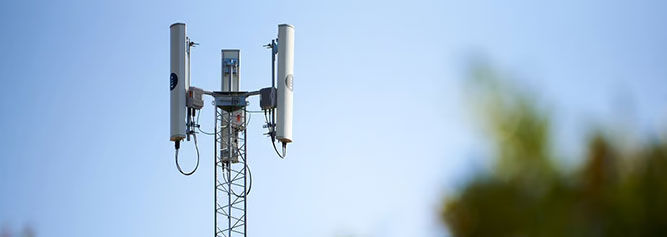Dish gets FCC’s blessing on 5G buildout commitments
- FierceWireless.Com
- Oct 2, 2023
- 3 min read

The FCC on Friday officially gave Dish Network its blessing that Dish has met its band-specific 5G build-out commitments and two of its three nationwide 5G commitments.
The first two commitments had to do with Dish deploying at least 15,000 5G sites and using at least 30 megahertz of Dish’s downlink 5G spectrum averaged over all its 5G sites nationwide.
The third commitment has to do with Dish verifying via drive test that it's meeting its 5G network requirements. The FCC’s Wireless Telecommunications Bureau has accepted Dish’s proposed drive test methodology for verifying compliance with that.
Dish has six months to complete the drive testing and submit its results. The goal of the test is to reflect the actual user experience using Dish spectrum where at least 70% of the U.S. population has access to average download speeds of 35 Mbps or greater.
In a Securities and Exchange Commission(SEC) filing today, Dish acknowledged the FCC’s approval and confirmed that the single remaining 5G commitment will use the drive test methodology agreed to and approved by the FCC.
“Our work to deploy the nation’s first-of-its kind standalone Open RAN 5G network continues, and we look forward to expanding our coverage and service offerings to provide competition in the wireless market as the nation’s fourth facilities-based carrier,” said Jeff Blum, EVP of External and Legislative Affairs at Dish, in a statement provided to Fierce.
In June, Dish announced that it now offers 5G broadband service to over 70% of the U.S. population, making its 5G service available to more than 240 million people. It did so with a 5G Standalone (SA) network based on open Radio Access Network (RAN) technology. Dish was mandated to meet specific 5G build-out requirements as part of the deal that enabled T-Mobile to acquire Sprint.
In a note for investors today, New Street Research (NSR) policy analyst Blair Levin said that while the FCC was expected to reach the conclusions about Dish's 5G build-out compliance, “the letter removes the doubt that some had about the FCC’s view of Dish’s performance to date.”
“Further, it clarifies – and in our mind makes more likely – that Dish is likely to achieve, and the FCC is likely to bless, Dish’s achievement of that third commitment,” he wrote, noting that Dish is further committed to additional 2025 targets related to specific bands.
Dish’s finances
In a separate note today, NSR analyst Jonathan Chaplin reiterated how the EchoStar transaction is critical for Dish because it secures the resources required to meet the June 2025 requirements without needing additional funds from the capital markets.
Dish is fully funded through the middle of 2026, leaving Dish two years to make progress on building a business the market will fund, Chaplin stated. If they can’t, they will be able to sell spectrum assets in 2026, as the consent decree that requires Department of Justice (DoJ) approval for some spectrum sales expires in April 2026, he said.
Of course, Dish’s ability to fund themselves through mid-2026 is controversial, Chaplin noted. One of the things he pointed out in a report last month was a tendency by investors to underestimate the savings from transitioning traffic from the MVNOs to Dish’s own network.
NSR estimates Dish could move 70% of Boost’s traffic onto its own network, thus saving $1.2 billion annually. Dish needed to get Apple certification in order to capture these savings, which it did on September 12, laying the foundation for a more promising outcome.
Dish’s first commercial by Grey New York began airing during Thursday Night Football on September 21, the first in a series of spots airing throughout the fall and winter for Boost Infinite, a Dish spokesperson confirmed to Fierce.
Dish declined to comment on how much they’re spending on advertising and marketing for the iPhone 15 and Boost Infinite.
In a report last month analyzing the iPhone 15 promotions of all the big U.S. carriers and cable, analysts at the investment firm MoffettNathanson said Dish’s offer of a free iPhone 15 Pro – without a trade-in – makes its promotion “arguably the richest (or at least costliest) in the industry.”
.png)





Comments